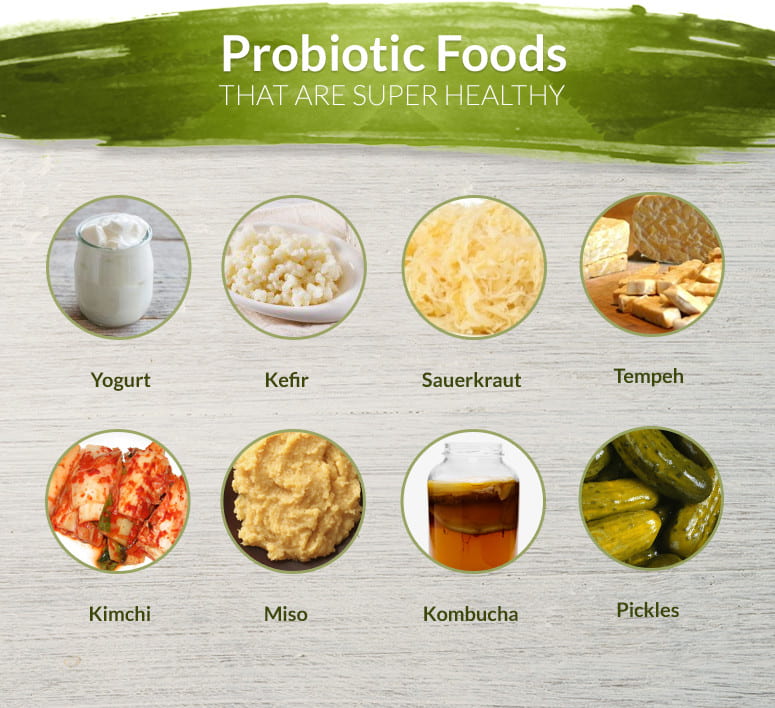Many of my best friends love kombucha and drink at least one bottle every day. But personally, I knew that the first time I tasted kombucha would also be the last time. Kombucha is a fermented tea that not only has the same health benefits of tea, but also provides beneficial probiotics. Probiotics are live microorganisms (mostly different strains of bacteria) that assist with digestion, helping to destroy disease-causing microorganisms, and help the body to absorb vitamins. These microorganisms are often present in certain foods like pickles and yogurt. So, if you’re someone who also doesn’t fancy the taste of kombucha, many other foods provide probiotic support as well!
People generally think of bacteria as a carrier of disease, so it may be confusing how these probiotic organisms are benefitting us. But, there continues to be growing scientific evidence that food containing live bacteria may help to provide temporary relief from symptoms associated with diarrhea, irritable bowel syndrome (IBS), ulcerative colitis, Crohn’s disease, and many more.
Where probiotics prove most effective is gut health. More specifically, in the treatment of diarrhea. Controlled studies have shown that Lactobacillus GG can shorten how long infants may have infectious diarrhea. Additionally, probiotics also help with constipation. Studies show that probiotics increase the number of weekly bowel movements by more than one, and helps to soften stools making them a lot easier to pass. Also, those who suffer from IBS benefit from this because they experience persistent constipation as their main symptom. Traditional treatments include laxatives and stool softeners, but recently dietary changes and probiotic supplements have become increasingly popular as an alternative method of treatment.
For women, probiotics also play an important role in preventing yeast infections, bacterial vaginosis, and urinary tract infections (UTI). Many women eat yogurt to treat recurring yeast infections. Some women even insert approved probiotic foods or manufactured options into their vagina, although oral supplements remain more popular.
For those with a diet that excludes probiotic foods, other methods are available. One method is probiotic supplements. Nutrition brands like Metagenics often have a variety of probiotic options such as: daily probiotics, women’s probiotics, kid’s probiotics, etc. Though I’ve never been in the position of needing probiotics, one of my closest friends has suffered from many yeast infections. She started taking probiotics when she was 16 and says they’ve continued to decrease the number of yeast infections she gets.


